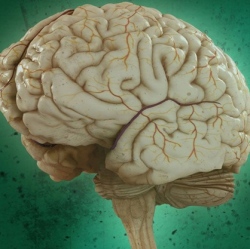
UC Irvine neurobiologists have created specific new memories by direct manipulation of the brain, which could prove key to understanding and potentially resolving learning and memory disorders.
Specific memories can be made by directly altering brain cells in the cerebral cortex, which produces the predicted specific memory, research led by senior author Norman M. Weinberger, a research professor of neurobiology & behavior at UC Irvine, and colleagues has shown.
The researchers say this is the first evidence that memories can be created by direct cortical manipulation.
How to create new memories
The researchers played a specific tone to test rodents.
They then stimulated the nucleus basalis deep within their brains, releasing acetylcholine (ACh), a chemical involved in memory formation. This procedure increased the number of brain cells responding to the specific tone.
The following day, the scientists played many sounds to the animals and found that their respiration spiked when they recognized the particular tone, showing that specific memory content was created by brain changes directly induced during the experiment. Created memories have the same features as natural memories, including long-term retention.
“Disorders of learning and memory are a major issue facing many people,” said Weinberger. “Since we’ve found not only a way that the brain makes memories, but how to create new memories with specific content, our hope is that our research will pave the way to prevent or resolve this global issue.”
The creation of new memories by directly changing the cortex is the culmination of several years of research in Weinberger’s lab implicating the nucleus basalis and ACh in brain plasticity and specific memory formation. Previously, the authors had also shown that the strength of memory is controlled by the number of cells in the auditory cortex that process a sound.
Weinberger is also a fellow with the Center for the Neurobiology of Learning & Memory and the Center for Hearing Research at UC Irvine.
“As with the case of most basic science findings, there is no immediate application to memory disorders in humans because direct and invasive activation of the nucleus basalis is not feasible for practical and ethical reasons,” Prof. Weinberger told KurzweilAI. “Moreover, the current findings provide the basis for a necessarily years long research program that is needed for form the basis for possible therapeutic intervention. At this time, the field of neuroscience now has a new approach and understanding of how the brain makes memory.”
The study was funded by the National Institute on Deafness and Other Communication Disorders, part of the National Institute of Health.
